Session
Three Pathways to a Climate-Resilient Society
Innovative Approaches to Stimulate Low-carbon Technology Transfer
The transfer of low-carbon technologies to developing countries will continue to play a crucial role in meeting the targets under the Paris Agreement and the 2030 Agenda. Yet, despite the existence of a large number of partnerships, programmes, initiatives and instruments to promote Low Carbon Technology Transfer (LCTT), no framework, agreement, assessment or monitoring mechanism currently exists to bind them all together, which means they are becoming ever more fragmented and uncoordinated.
In the absence of an effective coordination mechanism, addressing all the phases of LCTT (Research, Development, Demonstration, Market formation, and Diffusion) whilst also managing existing initiatives remains a challenging task. Hence, an effective technology facilitation mechanism that builds on this work and reaps synergy through networking and partnerships is urgently required.
IGES and UNU-IAS have undertaken various research activities to promote LCTT. This session aims to share the findings generated through those activities so far, and gathers experts and practitioners from developed and developing countries, working across intergovernmental organisations, research institutes, government and the private sector, to solicit their views on those findings and in particular on:
- 1) The linkages between the phases of LCTT and the role of stakeholders
- 2) How to make “stakeholder matchmaking” an operational and effective model
- 3) What role can be played by the Technology Facilitation Mechanism
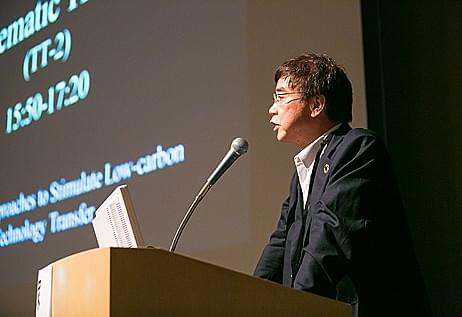
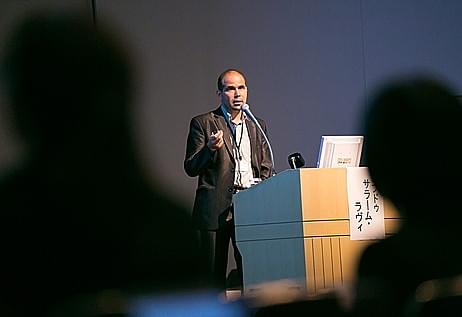
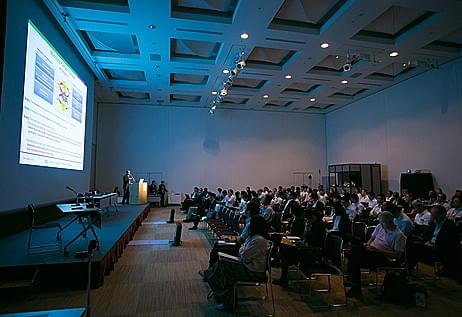
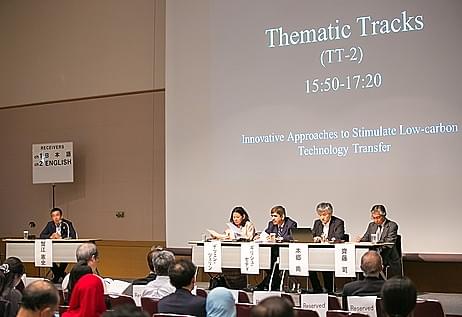
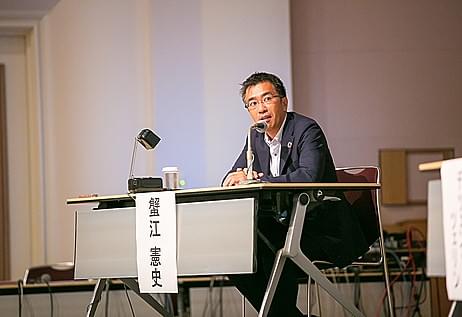
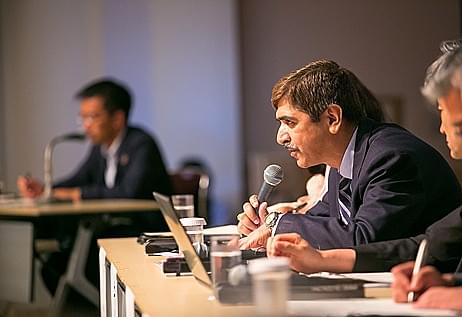
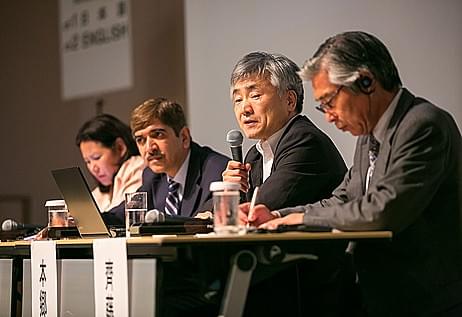
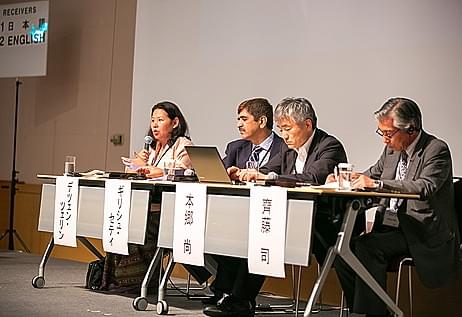
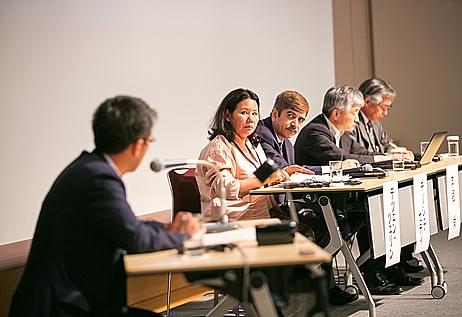
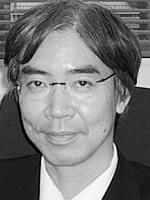
Opening Remarks
Naoya Tsukamoto
Project Director, UNU-IAS
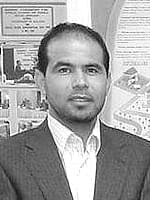
Presentation
Abdessalem Rabhi
Programme Manager, Kansai Research Centre, IGES

Panelist
Dechen Tsering
Regional Director, UN Environment in Asia and the Pacific
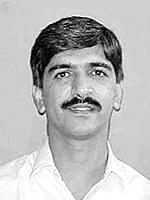
Panelist
Girish Sethi
Senior Director, Industrial Energy Efficiency Division, The Energy and Resources Institute (TERI)
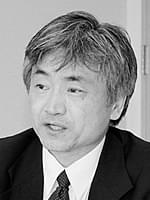
Panelist
Takashi Hongo
Senior Fellow, Mitsui Global Strategic Studies Institute
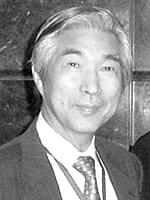
Panelist
Tsukasa Saito
Fellow, IGES

Moderator
Norichika Kanie
Professor, Graduate School of Media and Governance, Keio University / Senior Research Fellow, UNU-IAS

Panelist
Tsukasa Saito
Fellow, IGES
He had over 40 years of broad experience in the field of air compressor and compressed air system including design, quality assurance, after-sale service, and business consulting, etc. in Hitachi Industrial Equipment Systems Co. Ltd. He has also been working to disseminate the concept of "energy saving and emission reduction" by giving lectures, on-site training and consultation as well as making energy-saving proposals at home and overseas as compressed air specialist for more than 15 years. He is currently Fellow of IGES Kansai Research Center.

Moderator
Norichika Kanie
Professor, Graduate School of Media and Governance, Keio University / Senior Research Fellow, UNU-IAS
Before joining Keio, he worked at the Graduate School of Decision Science and Technology, Tokyo Institute of Technology, and Department of Policy Studies, The University of Kitakyushu. From August 2009 to July 2010 he was a Marie Curie Incoming International Fellow of the European Commission and visiting professor at SciencesPo, Paris. Among others he serves various committees and steering groups, including: a scientific steering group member of the Earth Systems Governance project; co-chair of Future Earth SDG Knowledge Action Network (KAN); member of the SDGs Promotion Headquarters, the SDGs Promotion Round-Table, Government of Japan; expert member of the Promotion of Overcoming Population Decline and Vitalizing Local Economy in Japan, Cabinet Office, Government of Japan; and, member of Committee on SDGs Stakeholder’s Meeting, Ministry of Environment. His research focuses on international relations and earth system governance. During 2013 to 2015, he was a project leader of the "Project on Sustainability Transformation beyond 2015 (POST2015)", with support from the Environment Research and Technology Development Fund, Ministry of the Environment, Japan. His recent publications include: Norichika Kanie and Frank Biermann (eds.) (2017) Governing through Goals: Sustainable Development Goals as Governance Innovation, MIT Press.

Panelist
Takashi Hongo
Senior Fellow, Mitsui Global Strategic Studies Institute
He analyzes energy and environment including climate change actions, water and low carbon infrastructure and biodiversity and provide advices. Also he proposes policy measures based on market base solution. “Game Change” and “Promised Market” are key for his proposal. Before joining the institute, he worked for JBIC (Special Advisor and Head of Environment Finance Engineering Department). He is Board of Directors at International Emission Trading Association (IETA), ICAO Global market Base Mechanism Task Force, Expert for TC265 WG6(CO2 EOR), Project Manager for DIAS (Data Integration and Analysis System) , Policy Advisor to Globe Japan and member of various committees for government and public institutions. He participated many study for energy and climate and wrote numerous articles.

Panelist
Girish Sethi
Senior Director, Industrial Energy Efficiency Division, The Energy and Resources Institute (TERI)
Girish Sethi is Senior Director of the Industrial Energy Efficiency (IEE) Division of TERI, having more than 31 years of experience in the field of energy conservation and sustainable development. His direct responsibilities at TERI include providing strategic direction and coordinating the activities related to industrial energy efficiency and demand side management within TERI. These involve energy audit assignments, technology assessments, sectoral studies, capacity building programs and projects concerning rational use of energy. Policy research and studies in the domain of electricity regulation and practice is also one of the thematic areas. He has lead multidisciplinary research teams in action research projects involving development and dissemination of energy efficient and environmentally benign technologies in the small and medium enterprises. Other areas of interest include inventorization of corporate level GHG emissions and aspects related to technology transfer and promotion of low carbon energy technologies in the context of climate change.
He is a Chemical Engineer and holds Masters Degree in Energy Studies from Indian Institute of Technology, New Delhi. He has also completed a multi-disciplinary Masters course on “Technology in the Tropics” from University of Applied Sciences, Cologne, Germany.

Panelist
Dechen Tsering
Regional Director, UN Environment in Asia and the Pacific
Ms. Dechen Tsering is the Regional Director of UN Environment in Asia and the Pacific and has a history of management and leadership positions. She served as the Director of Climate Finance, Technology and Capacity Building in the UNFCCC secretariat. She has over 25 years of experience in national government and intergovernmental organizations and has been actively involved in intergovernmental negotiations on issues related to climate finance, technology development and transfer and climate adaptation. She also has experience in the management of complex development projects. Dechen holds a Ph.D. from the Federal Institute of Technology, Zurich in forest economics and policy and has a MPP from Georgetown University and Undergraduate Degrees from UC Berkeley.

Opening Remarks
Naoya Tsukamoto
Project Director, UNU-IAS
He has a Masters in Environmental Science from Johns Hopkins University, and a Bachelor of Physics from the University of Tokyo. Having entered the Ministry of the Environment of Japan in 1985, he has wide experience of pollution control, regional environment management, and global environment affairs. In From 2005-2008 he was head of the national delegation to the IPCC/AR4. Under the UNFCCC he served as Vice Chair and board member of the Adaptation Fund from 2006-2008, as well as a member of the Adaptation Committee from 2011-2013. From July 2014 to June 2016 Mr. Tsukamoto worked for the Institute for Global Environmental Strategies (IGES) as Secretary-General/Principal Researcher. Since July 2016 Mr. Tsukamoto serves as Project Director of three projects under the United Nations University Institute for the Advanced Study of Sustainability (UNU-IAS) and as Director of the IPSI Secretariat. His current research areas encompass climate change and Japan–China relations.
